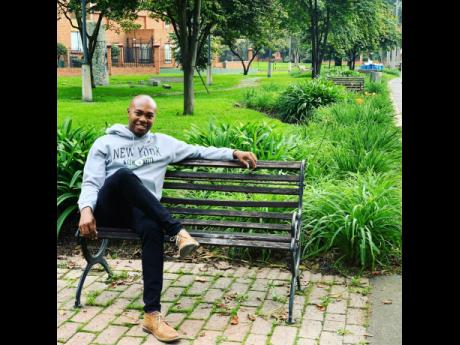Churches opening up to LGBTs – Jaevion Nelson
Although still facing backlash from the majority of churches in Jamaica, Jaevion Nelson, executive director of Equality for All Jamaica Foundation, said some church leaders are currently standing out in support of people belonging to the lesbian, gay, bisexual, and transgender (LGBT) community, and welcoming them in their churches.
Speaking recently at a weekly community meeting on the Zoom videoconferencing platform about challenges and hope for LGBT rights in developing countries, Nelson shared that the Jamaica Council of Churches have on several occasions done different activities with the community, has been a part of the Pan Caribbean HIV work, and has established a human rights committee in Jamaica.
According to him, the council have also issued a statement stating that pastoral care has to include providing support to LGBT people, and that the church has to be a welcoming space to LGBT people.
“Where the LGBT community is concerned, the churches play a huge role. We have seen where a number of church leaders have participated in different types of protests, some of them mass rallies, some of them just petitions to the prime minister, some of them meetings and, of course, sermons are often littered with anti-LGBT sentiments, which makes it difficult for a number of different people who might be LGBT in different churches.
PROTECTED AND RESPECTED
“However, while that is the general consensus, there are some church leaders who have stood and say LGBT people should be protected, they should be respected, and they have rights like anyone else. For example people from the Baptist Union have been very supportive. About two years ago, we had done a meeting with the president of the Jamaica Baptist Union and he then invited members of the community to come to church and to worship with them,” Nelson shared.
Further, he said religious leaders have also written letters and articles giving statements on behalf of the community and on one occasion, Sean Major Campbell, an Anglican priest, washed the feet of two lesbians and allowed transgender men to speak in church about their experiences.
In the meantime, Joel Simpson, founder and managing director of Guyana’s Society Against Sexual Orientation Discrimination, said the cultural and religious diversity in Guyana is responsible for the social acceptance and high level of tolerance in the country.
“What is also different for Guyana, unlike the ‘black islands of the Caribbean’ where 90-something per cent of the population are the descendants of African slaves, Guyana is a mixed population, where the majority of the population are descendants of Indian immigrants who came to work on the plantation as indentured labourers, and there are other groups.
“With that epic diversity comes a religious diversity; so although Christianity makes up 60 per cent of the religion, there is also a significant Hindu population and that adds to some of the inclusion we see socially and culturally in Guyana. One thing for sure is that the Hindu philosophy by large appreciates, respects and accepts a third gender; and there are actual passages from Hindu religious text that speak directly to man, woman and a third gender in a loose English translation,” Simpson said.
Also speaking on the panel for the rights of LGBT people in developing countries was Nigerian LGBT activist Micheal Ighodaro, who shared that members of the community in his country are often exiled due to their visibility.

